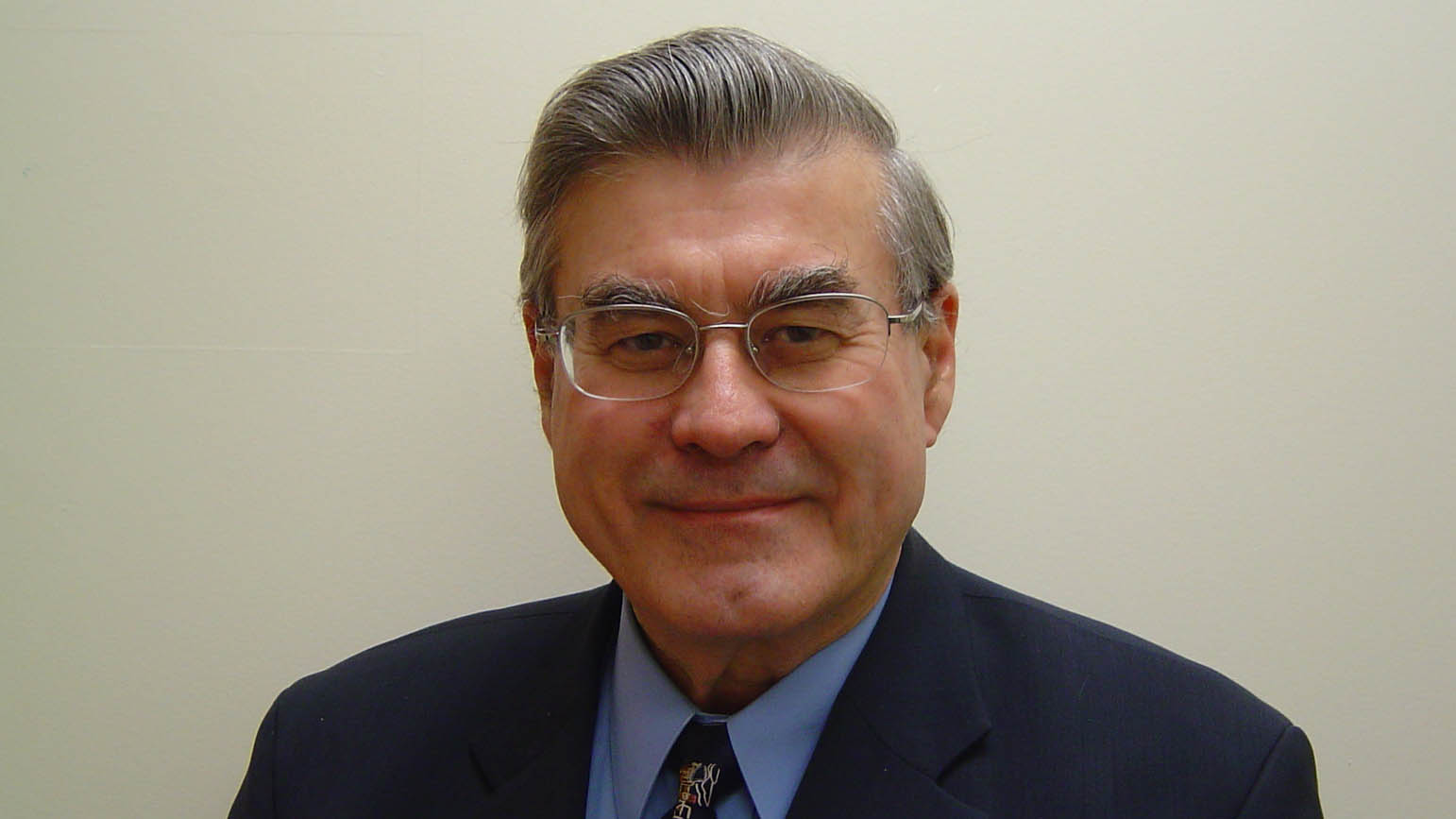Faces of Philanthropy: Lawrence Mysak
Anna Schmidt - 8 November 2024

In 1961, 21-year-old Lawrence Mysak, BA(SpecCert) ’60, BSc(Hons) ’61, made his way to the career counselor’s office on the University of Alberta campus. He had just finished a rigorous Honors degree in mathematics, but was questioning if a career in math and science was really right for him.
The counselor led Mysak through an aptitude test, then turned to the grad with his results: “Well, it appears you really like to help people. I think your career should be as a minister.”
Within the year, Mysak was standing behind a lectern — but he was teaching, not preaching. As a university lecturer, the young mathematician had found a way to combine his academic skills with his desire to counsel others.
Today, Mysak is known across Canada and around the world as a renowned educator and climate change scientist. Now retired from a prolific six-decade career, the U of A grad is still supporting students in the faculty where he first started teaching. Building on nearly four decades of generosity to the Faculty of Science, Mysak established the Lawrence A. Mysak Award in Science in 2016, funding an annual scholarship for undergraduate students passionate about climate research.
“My legacy is not just teaching and research, but it’s working with so many students, helping them get on in their careers,” says Mysak. By creating the endowed award, he aims to inspire students to bring their passion for science into the public sphere, he adds.
“My hope is that students can communicate their enthusiasm and understanding of science to others. We’re doing so much practical work, and once you can do that outreach, it makes a much more scientifically literate society.”
Every year, Mysak connects with the scholarship recipient on a video call to chat about their research and career aspirations. “The award is reaching a broad spectrum of students. It’s lovely because they're all so different. I hear all sorts of new ideas,” he says.
Earlier this year, Mysak spoke with Elise Beaton, the most recent recipient of the award. Beaton is now undertaking her fifth and final year of a bachelor of science, Specialization in planning, where she’s studying how environmental management can help cities mitigate the challenges of climate change. And thanks to Mysak, she is already putting that knowledge into practice.
“The award definitely helped take away some financial strain. I even included the scholarship on my resume and it helped me snag a co-op position this summer,” says Beaton.
Now, she’s spending her days as a planning work experience student at the City of Edmonton, where she researches municipal policies and conducts jurisdictional scans, writing reports to advise the city on practices that will boost resilience to climate change. For example, Beaton looked into different cities’ regulations for trees and shrubs on housing lots to determine if enforcing vegetation minimums is an effective way to increase the urban tree canopy.
“Receiving this scholarship affirmed for me that there is a lot of value in pursuing climate change work,” says Beaton. “People like Lawrence and his generosity really help make it easier for people like me to try and make a difference in the world.”
This application of scientific passion to pressing global challenges is what drove Mysak throughout his own career. “That’s what I enjoyed doing all my life — not just doing mathematics for mathematics sake, but trying to solve real-world problems and explain why things happen the way they do,” he says.
After witnessing the impact of an El Niño warming event in the early 1980s, Mysak became fascinated by the impact of the oceans on environmental variability. In his 40s, he made a bold mid-career transition from teaching applied math to researching climate change.
Mysak soon became a leader in the burgeoning field, serving as the inaugural NSERC Industrial Research Chair in Climate Research at McGill University, and later founding and directing the multi-university Global Environmental and Climate Change Centre (now titled GEC3).
Mysak’s research focused on three key areas: how changes in the Pacific Ocean alter fish migration, how the oceans and atmosphere impact Arctic sea ice and how global climate models can help forecast environmental change. He was appointed a Member of the Order of Canada in 1996, and is a proud recipient of U of A’s Distinguished Alumni Award (2009).
At 84, Mysak remains invested in ensuring all people can understand the impact of scientific research. He is currently working on a series of short engaging stories featuring his research career and lessons from academia, which he hopes to compile and publish as a book.
His memoirs are a collection of some of his most intriguing adventures, like the time he almost drowned in a rip current during an escapade he admits was foolish, especially for an expert in ocean and wave dynamics. Or the unorthodox way he learned to play the flute by removing the head of the instrument. Or how he finally found the cottage of his late wife Mary's dreams, and how it taught him to appreciate life without worrying about uncertainties. And how he found love again when he met his wife Janet, with a pick-up line that could only have worked at the science lecture where they met.
“I’d title it Turning Points, because there are so many times when you come to a fork in the road where you have to make a decision,” says Mysak. “If there’s any message I would like to leave with you, it’s this: ‘Take a chance. Always take a chance.’”